Tarmac Driveway Cost
Last updated 16th September, 2025
Are you considering a tarmac drive? Wondering about tarmac driveways and their cost?
Discover the expense involved in installing tarmac driveways, ranging from £1,100 to £7,900, contingent upon the dimensions and hue of your desired tarmac driveway.
This guide delves into the specifics of tarmac driveway cost, covering various sizes and the expenses associated with hiring a professional for the task. Explore topics such as utilising a tarmac calculator, removing existing driveways, the tarmac cost per m², groundwork, and the process of laying new tarmac.
Curious to know more?
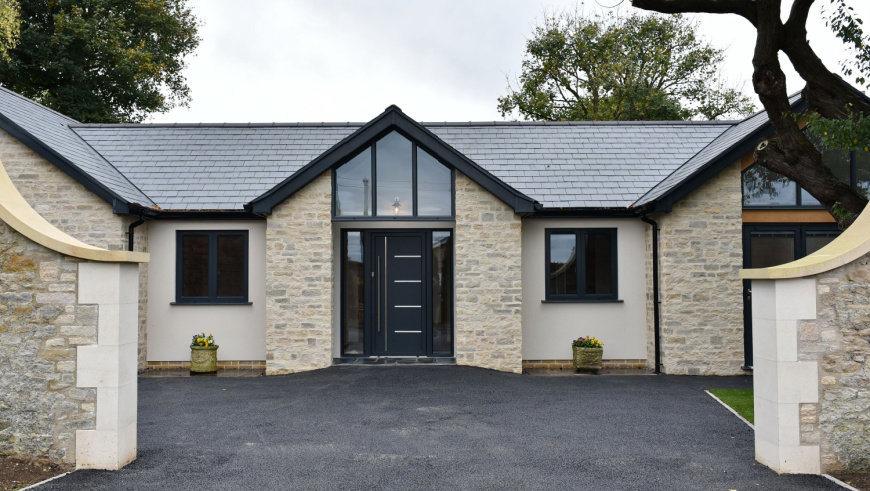
How Much Does It Cost to Tarmac a Drive?
The cost of laying a tarmac driveway is normally calculated per square metre.
For classic black tarmac, you should expect to pay around £40 to £50 per square metre. While red tarmac can range from £60 to £70 per m².
Tarmac drive prices will also vary depending on the size of the driveway, as the larger the driveway, the more expensive the installation will be.
For instance, a small 20 square metre path is a cheap driveway which typically costs around £1,100 to £1,700, while a large 100 square metre tarmac drive can cost up to £5,900.
Table of Contents
- How much does it cost to tarmac a drive?
- Cost of tarmac driveway labour
- How long does a tarmac driveway take to install?
- What is tarmac?
- What does tarmacking a driveway entail?
- DIY tarmac driveway
- Tarmac prices per m²
- Benefits of tarmacking a driveway
- Additional tarmac driveway costs
- Tarmac driveway alternatives
- Building regulations for tarmacking a driveway
- Maintaining costs for a tarmac driveway
- Cleaning costs for a tarmac driveway
- Tarmac driveway removal cost
- FAQs
- How to find and hire a tarmac driveway installer
- Sources
Tarmac Driveways Prices
Below are some estimated costs of hiring a driveway specialist to tarmac a driveway:
| Size | Red | Black |
|---|---|---|
| 20 sq. m | £1,500 - £,1700 | £1,100 - £1,300 |
| 40 sq. m | £2,900 - £3,300 | £2,000 - £2,500 |
| 60 sq. m | £4,200 - £4,800 | £3,000 - £3,600 |
| 80 sq. m | £5,500 - £6,300 | £4,000 - £4,800 |
| 100 sq. m | £6,900 - £7,900 | £4,900 - £5,900 |
How Much Does Tarmac Cost Per M²?
Planning to install a tarmac driveway yourself?
A DIY tarmac driveway installation can help you save a significant amount on labour. However, you also need to consider the following tarmac supply costs:
| Description | Avg. Cost |
|---|---|
| Red tarmac | £60 - £70 per m² |
| Black tarmac | £40 - £50 per m² |
| Edging | £5 - £40 per m² |
Tarmac Driveway Cost Breakdown Calculator
Individual costs of laying black tarmac for a 60 square metre driveway - Total Cost: £3,000
Materials
£1,500
Tradesmen
£1,350
Waste Removal
£150
Cost of Tarmac Driveway Labour
Now, let's take a look at the labour costs and the timeframes for installing a tarmac driveway. A driveway specialist will often charge in the region of £150 to £200 per day. However, driveway installers usually work in pairs, so you expect to pay a daily rate of around £250 to £400.
How Long Does a Tarmac Driveway Take To Install?
How long will it take to install a tarmac driveway?
The average timeframe for installing a tarmac driveway depends on the size of your driveway. For example, a small driveway measuring 20 square metres should take around 2 to 3 days to complete, while a 100 square metre driveway could take up to 6 days or more to finish.
The job may take longer if additional excavation is required or access is restricted, causing the job to take an extra 1 to 2 days to complete.
What Is Tarmac?
Tarmac (short for tarmacadam) was originally used to refer to crushed stone coated with tar, though the modern version almost always uses bitumen mixed with crushed stone instead.
The forerunner to tarmacadam was first pioneered in the 1820s, although the tar-binding process was patented by the Welsh inventor Edgar Purnell Hooley in 1902.
The production of tarmac involves heating the material at a temperature of around 150 to 190 degrees Celsius to remove impurities. Tarmac is then mixed with other materials, including tar and other aggregate materials such as gravel and sand. This is then left to cure at a high temperature before it can be installed.
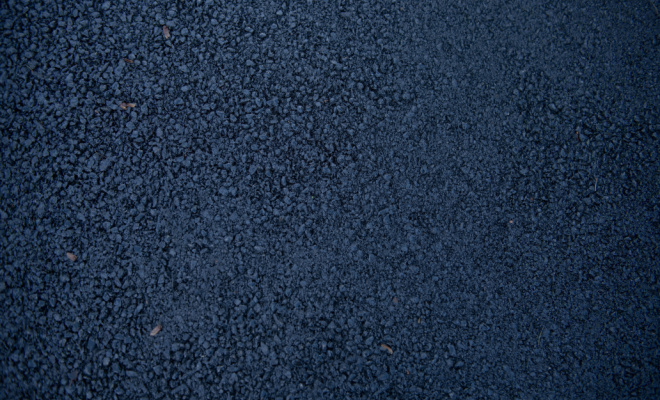
Why is tarmac popular?
Tarmac has been popular for years, as the material is one of the most durable and weather-resistant options available for driveway and road surfaces. It is also long-lasting, so it can save you a significant amount on replacing or repairing road surfaces.
What Does Tarmacking a Driveway Entail?
To help you understand the process of installing a tarmac driveway, here's a step-by-step breakdown:
Removing the Existing Driveway
Prepare the Driveway
Laying the Tarmac
Removing the Waste
This will involve ripping up the old driveway with heavy machinery and excavating the base in order to prepare the ground for installation.
If you already have a tarmac driveway, then the professional driveway specialist will either repair the existing base or create a new base if it has significant damage.
Before the tarmac driveway can be installed, a specialist will lay a weed control membrane to prevent unruly weed growth on your driveway.
At this point, they will either install new drainage, such as a soakaway drain, or connect existing drainage to the pipework that is in place. If you need a soakaway, then it's worth budgeting for the soakaway installation cost too.
Once this is complete, the sub-base can be installed, along with concrete and edging to protect and sustain the driveway.
Once the base is prepared, the first layer of tarmac will be heated and installed with a machine or by hand, which should then be compacted with a roller.
This process will then be repeated with a second layer of tarmac.
Once the tarmac is installed and cured, the area will then be cleaned thoroughly. This will involve removing and disposing of any waste materials, while also giving the area a quick brush.
DIY Tarmac Driveway
While it is not illegal to install a DIY tarmac driveway, it is not advised, as tarmacking is a complex job which can involve heavy machinery. This can be dangerous, and if the job is not done properly, it may be expensive to repair or replace.
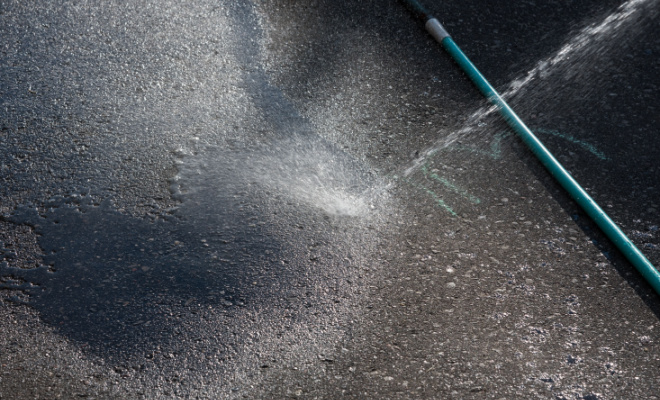
There are some jobs that you can complete yourself, such as painting your tarmac driveway. This is a great way to maintain your tarmac driveway and keep it looking brand new. To complete this job, you will need the following materials:
| Type of Equipment | Avg. Cost |
|---|---|
| Tarmac paint | £40 - £130 |
| Primer | £18 - £35 |
| Brushes | £2 - £10 |
| Roller brush set | £3 - £15 |
Tarmac Prices Per M²
Now, we'll move on to the different types of tarmac, including:
Hot Tarmac Cost
Hot-mix tarmac is one of the most common materials used for tarmac driveways. It is produced at a temperature between 150 and 190 degrees Celsius before it is shipped and installed.
Cold Tarmac Cost
Cold tarmac is installed by mixing the materials with bitumen emulsion or solvent-based binders. This is useful for repairs and low-traffic areas.
Cold-mix tarmac is usually cheaper at around £7 to £10 per bag. This is because cold tarmac does not need to be heated up and is therefore easier to transport and install. However, without high temperatures, the tarmac installation will not be as durable and may not last as long.
Black Tarmac Cost Per M²
The original colour of a tarmac driveway is black. It is mostly used for driveways and roads, providing a classic aesthetic.
One of the main advantages of using black tarmac is that it is much easier to produce and is more affordable than coloured tarmac, as it costs around £40 to £50 per m². A downside of using black tarmac is that your driveway will not stand out, as it will look like every other tarmac driveway, unless additional edging is added.
Coloured Tarmac Cost Per M²
Tarmac also comes in a variety of colours, including red, green, brown and more, which can be used for a number of tarmac driveway ideas. These are created by combining normal tarmac with various aggregates, pigmented binders, or resin-bound systems.
The main benefit of coloured tarmac is that it offers a unique aesthetic and brightens up your driveway. However, it is one of the most expensive options, costing around £60 to £70 per m² for red tarmac. This is because the majority of manufacturers do not stock coloured tarmac in comparison to black tarmac.
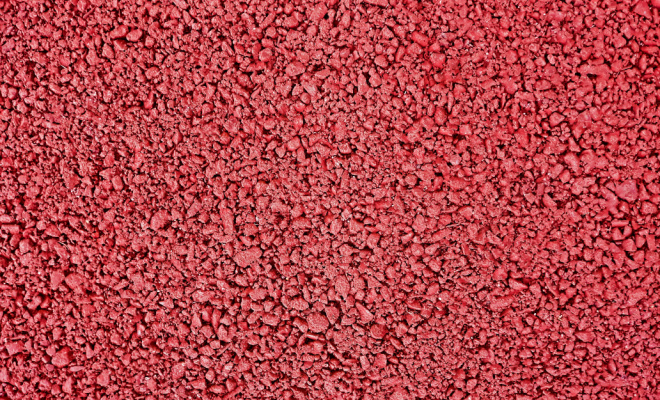
Benefits of Tarmacking a Driveway
Here are some of the main advantages of laying a tarmac driveway:
- Long Lifespan - Tarmac is one of the most durable road surface materials, enabling tarmac driveways to last up to 20 years or more. This will, of course, depend on the quality of the installation and how well the driveway is looked after.
- Low Maintenance - Tarmac drives only need to be brushed every so often to remove any dirt and debris. You can also rejuvenate your tarmac driveway by cleaning and sealing it once a year.
- Easy to Repair - Tarmac is durable and highly resistant to cracking and warping. If any serious damage is done, tarmac resurfacing can be completed at a low cost.
- Weather Resistant - Tarmac driveways are highly weather-resistant and can therefore withstand harsh weather conditions, such as snow or hot summers.
- Easy to Install - Tarmac is straightforward to install, so professionals can easily install it in a matter of hours in many cases. It also dries quickly as the tarmac cures faster than most driveway materials.
Most of these benefits are only relevant when the driveway is effectively and professionally installed. When researching the overall tarmac driveway cost, remember that costs can spiral if the job isn't done properly on the first attempt.
Additional Tarmac Driveway Costs
There are various other costs you need to consider when installing a tarmac driveway, such as:
| Description | Avg. Cost |
|---|---|
| Installing a drop kerb | £330 - £1,500 |
| Carport installation | £2,500 - £5,000 |
| Installing security lights | £125 - £200 per light |
| Build a garden wall | £800 - £1,200 |
| Garden maintenance | £30 - £800 |
| Installing fence panels | £500 - £1,000 |
| New garage door | £450 - £5,150 |
| New front door | £250 - £2,500 |
| Gate installation | £1,000 - £5,000 |
Some of these are nice-to-haves and may wait until a later date, so they needn't factor into the overall tarmac driveway cost if you don't currently have the budget.
However, anything that might damage your tarmac drive once it has been installed is better done at the same time or before. This reduces the possibility that you'll have to replace the drive surface again before its expected lifespan is over.
Dropped Kerb Cost
If you intend to cross a public highway and there isn't a dropped kerb, you will likely need to install one.
It's best practice to get this sorted before any driveway is put in, no matter whether it's a tarmac drive or one made from another material. As such, it's something that should form part of your tarmac driveway cost calculation and initial budget.
The average cost to drop a kerb can be anything from £330 to £1,500. This varies due to the number of kerbstones that need removing and how difficult it is to level the footpath to the new height.
Carport Installation Cost
Adding a carport to your property can add extra expense to a new driveway, with the typical carport installation cost ranging between £2,500 and £3,500.
A tarmac drive will probably need some additions before a carport can be installed over it. This is because tarmac is not a solid enough base to handle the weight of a carport.
Concrete feet for the carport or ground screws are options to secure it on a tarmac driveway, although it may also be possible to use weighted anchors instead.
Garage Door Replacement Cost
For homes with a garage, it's worth considering when you install a new tarmac drive whether you need a new garage door at the same time.
As a garage will open directly onto the driveway, any retrospective work could damage the tarmac surface.
On average, the garage door installation cost can range from £450 to £5,150. Garage doors for limited budgets are more straightforward, with the most expensive options having more complex machinery involved.
Gate Installation Cost
Keeping your new tarmac drive in good condition may require installing a gate to stop people from entering your property without permission. This can be useful if you're in an area where driveways are often used for cars to turn around or as cut-throughs.
Any gate installation cost estimate will be dependent on the type of gate you want and how technologically advanced you'd like it.
Gate prices can go all the way up to £10,000, with a typical electric sliding gate installation cost averaging between £1,000 and £5,000.
Tarmac Driveway Alternatives
If a tarmac driveway doesn't appeal to you, there are several other common options in use across the UK.
These have pros and cons in comparison to tarmac, and total driveway costs will depend primarily on its size.
Block Paving Driveway Cost
Block paving is a common pavement option which uses layered bricks to create a decorative pathway.
The overall block paving driveway cost will depend on the material you choose, as well as the size of your driveway. Concrete costs around £20 to £60 per square metre while clay is typically priced at £70 to £100 per square metre, and natural stone is slightly more expensive at £50 to £105 per square metre.
Pros
- ✔ Extremely durable.
- ✔ Resistant to oil spills, chemicals and frost.
- ✔ Can last up to 25 years.
Cons
- ✖ Susceptible to weed growth.
- ✖ Needs regular maintenance.
- ✖ Requires a proper sub-base, which can be expensive.
Concrete Driveway Cost
Concrete driveways are a type of block paving simply made up of concrete slabs. On average, concrete driveway costs are around £60 per square metre, so the overall price will depend on the size of your driveway.
Pros
- ✔ Affordable option.
- ✔ Lifespan of up to 50 years.
- ✔ Durable enough to withstand heavy vehicles.
Cons
- ✖ Susceptible to oil staining.
- ✖ Tends to fade over time.
- ✖ Not an aesthetically pleasing option.
Gravel Driveway Cost
Gravel driveways are made up of loose rock or stone, which is typically combined with sand and clay. Typical gravel driveway installations cost around £20 to £50 per square metre, but the exact price you're quoted will depend on the type of aggregate you choose.
Pros
- ✔ Low budget driveway option.
- ✔ Easy to install.
- ✔ Offers a variety of design choices.
Cons
- ✖ Difficult to clean.
- ✖ Stones can be displaced, leading to potholes on the driveway.
Resin Driveway Cost
There are two different types of resin driveway – resin-bound and resin-bonded. The cost of resin driveway installation will be heavily dependent on which option you choose.
A resin-bound path consists of aggregate which is mixed with resin to create a smooth driveway, which costs around £1,200 to £10,000.
While a resin-bonded driveway features aggregate that is installed on top of a resin layer, which offers a similar appearance to a gravel path and is normally priced at £800 to £6,000.
If installing a resin-bound driveway, you can benefit from a robust and long-lasting material which is SUDS (Sustainable Urban Drainage System) compliant. This prevents water from pooling and overflowing during heavy rainfall, unlike resin-bonded driveways, which are not permeable and therefore do not drain well.
Pros
- ✔ Porous and environmentally friendly.
- ✔ Low maintenance driveway option.
- ✔ Resistant to heavy vehicles.
Cons
- ✖ Moss and weed growth can make the driveway slippery.
- ✖ Needs regular cleaning and maintenance.
Building Regulations for Tarmacking a Driveway
Permissions and requirements will vary depending on your local authority.
Often, if you're installing a new tarmac driveway that is SUDS compliant (made up of porous materials which allow water to drain properly), this falls under permitted development rules.
If you plan on making changes outside the requirements, then you will need to submit an application. For instance, the installation must not hinder access to the property, or if you plan on changing levels and installing steps, then you may need to apply for approval.
There are also rules around dropped kerbs if you need to install one.
What's the cost of building regulations approval?
The cost will depend on your own local authority, as they all charge different fees.
Maintenance Costs for a Tarmac Driveway
It is important to maintain a tarmac driveway at least once a year, along with conducting any repairs, such as:
Sealing a Driveway
Resealing your driveway on a regular basis is very important to maintaining the look and structure of your tarmac driveway. You may also need to resurface every 5-10 years, so this needs to be taken into account when choosing tarmac for your driveway.
The cost of driveway cleaning and sealing by a professional is around £150 to £200 per day. You could also do it yourself, although you will need to pay for an appropriate tarmac sealer, which can cost around £16 to £120 per bottle. This should be applied using a roller kit, which will take a lot longer than a professional job.
Repairing a Crack
If you have any cracks in your driveway, then it will cost around £150 per day for a professional to fix it, or you could do it yourself. This will involve applying a weed killer, followed by removing any weeds or loose material from the ground first using a knife.
You should then use a hose to clean out the cracks. To avoid water pooling, you should use a brush to remove the excess water.
To repair the crack, you will need a tarmac-friendly crack filler which should cost around £20 to £35 per tub. You can also use cold-lay tarmac, which is typically priced at £7 to £10 per bag, which is much easier to install, although it does not last as long.
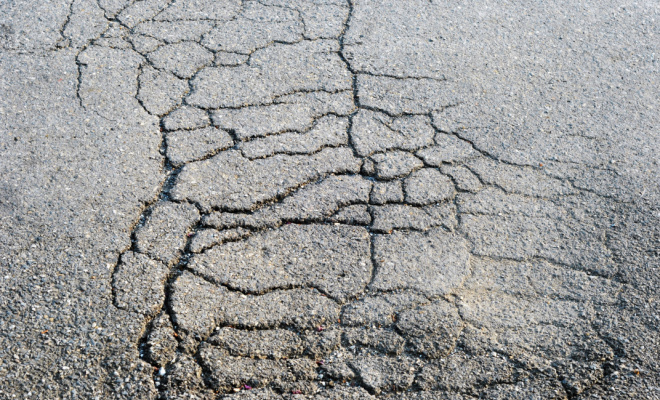
Cleaning Costs for a Tarmac Driveway
To ensure your tarmac driveway is long-lasting and looks good, you should conduct the following:
Weed Removal Cost
Weeds are a natural process that cannot be fully prevented, no matter what you do. They like to break through surfaces, especially near lawn or plant bed areas.
The best way to try to prevent them is to treat the area of the proposed driveway regularly with weed killer for at least a full week before the driveway is to be installed. This will cost around £2 to £20 and will give the driveway a fighting chance against the weeds.
After the driveway is done, if weeds eventually penetrate the surface, then use a water-based weed killer to kill the weeds, and when they have died off, you can carefully remove the remaining foliage.
Do not just try to pull weeds out through the tarmac. Sometimes, a small weed poking through can have large roots attached, and attempting to pull this out can actually cause further damage to the tarmac surface.
If you do not have the time or experience to do this, then you could hire a gardener, which will cost around £10 to £50 per hour.
Oil Removal Cost
If you have any oil stains on your tarmac driveway, they can be hard to clean, so you may want to bring in a professional to jet wash it for you, which can cost up to £300. However, if you want to save money, you could consider doing it yourself.
The problem with oil stains is that they are hard to remove, so a simple water and soap mixture will not work. Instead, you should use an oil remover, which you can buy for around £20 to £30 per bottle.
This should be sprayed onto the damaged area using a power washer, which you can rent for £20 to £90 a day. It should then be scrubbed with a brush. The oil remover should then be left for around 10 to 20 minutes before rinsing it with a hose.
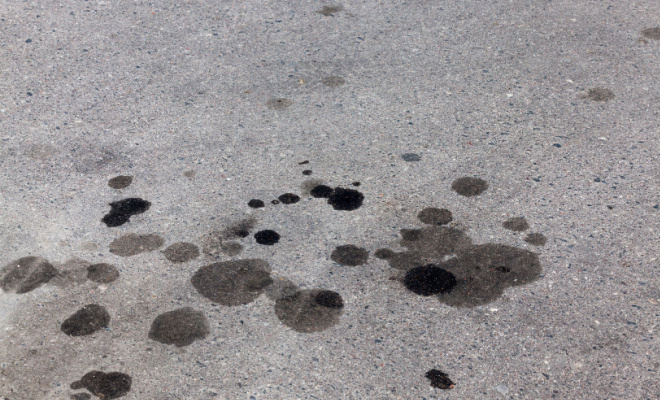
Tarmac Driveway Removal Cost
If your existing tarmac driveway is significantly damaged with stains and cracks, then you may want to have it removed and re-laid. You may also want to have it removed and replaced with a different type of driveway.
The average cost of removing an old driveway is simply the cost of labour, machinery and skips. A regular single or double driveway shouldn't take more than 1-2 days to remove, so you would expect a cost of between £150 to £400.
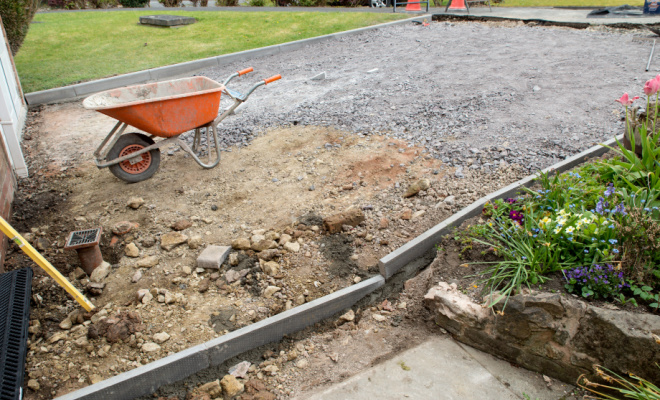
If you’re an experienced DIY enthusiast, then you could consider removing it yourself.
To dig up the tarmac, you should hire a pneumatic drill, which will cost around £60 to £70 per day. This will allow you to get the job done quickly without spending hours using a spade.
To dispose of the removed tarmac, you will need a skip, so factor skip hire cost into your budget. This can cost anywhere from £60 to £300, depending on the size you need.
FAQs
How to Find and Hire a Tarmac Driveway Installer
To ensure your tarmac driveway is long-lasting and durable, you should hire a professional driveway installer who will ensure that it is fitted properly. This will cost around £150 to £200 per day.
Before hiring a professional driveway specialist, you should check that they have the right qualifications, such as an NVQ in hard landscaping or roadbuilding. You should also enquire about their experience and ask for evidence of previous work.
Another important thing to ask is whether they have public liability insurance, as this will protect your home should any accidents or damage occur.
Sources
https://www.planningportal.co.uk/permission/common-projects/patio-and-driveway/building-regulations
https://www.drivewayexpert.co.uk/tarmac-driveway-patio.html
https://www.copavementsolutions.com/hot-mix-vs-cold-mix-asphalt/
https://www.pavingexpert.com/blocks









